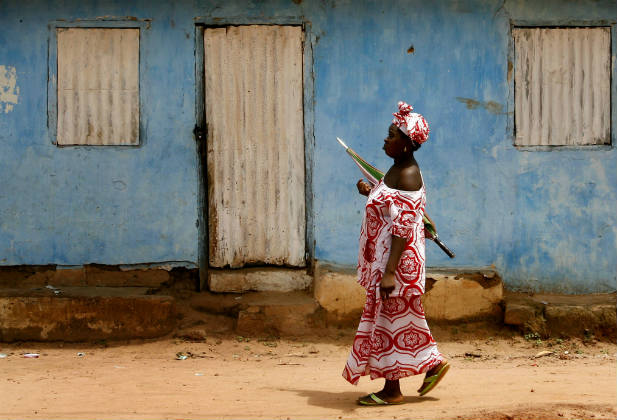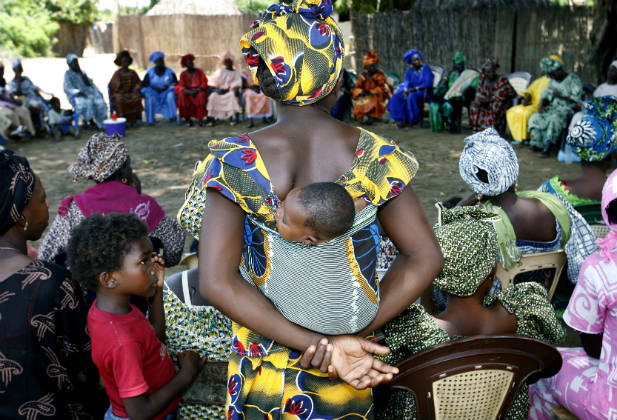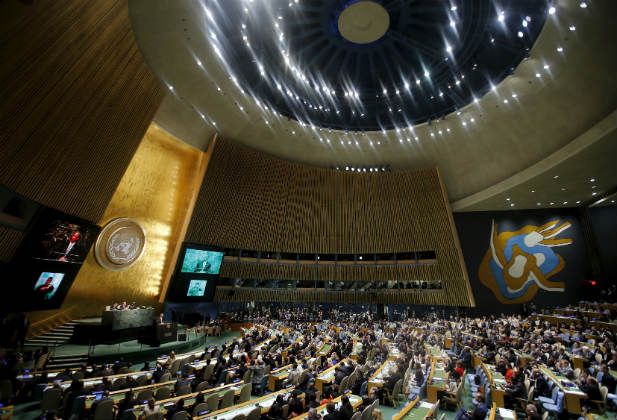International Day of Zero Tolerance for FGM

February 6, 2017 3:58 pm (EST)

- Post
- Blog posts represent the views of CFR fellows and staff and not those of CFR, which takes no institutional positions.
More on:
Today, Feb. 6, 2017, marks International Day of Zero Tolerance for Female Genital Mutilation. Learn more about the practice of female genital mutilation/cutting through these five publications from the Women and Foreign Policy program, and join the conversation on social media with @CFR_WFP to #EndFGM.
Why the U.S. should help end FGM
In a guest blog post on Women Around the World, former U.S. Ambassador-at-Large for Global Women’s Issues Cathy Russell argues that preventing and responding to FGM is critical to U.S. foreign policy because the practice harms girls’ health, limits access to education, and contributes to intergenerational poverty. The U.S. Strategy to Prevent and Respond to Gender-based Violence Globally, Russell asserts, makes clear that combating FGM requires that U.S. officials engage in a multi-sectoral response—one that supports community-led initiatives, changes to social norms, and political commitments. Read the blog post on Women Around the World »

Gambia enacts historic legislation to end FGM
In an interview for the Five Questions series, Dr. Isatou Touray, an activist for women’s rights and the first female candidate for the presidency of Gambia, comments on recently-enacted bans on female genital mutilation and child marriage in the small West African nation. Read the interview on Women Around the World »

Rural community education reduces FGM prevalence
Molly Melching, founder and CEO of Tostan, shares recent research evaluating the effectiveness of legislation banning FGM in rural communities, highlighting a 2014 study showing that legal bans are only effective when accompanied by grassroots activism. “As a direct result of Tostan’s [community education] program,” Melching writes, “over 7,600 communities in eight countries across Africa have publicly declared their intention to abandon FGC and child and forced marriage. This means that three million people now live in communities that have chosen—collectively and of their own volition—to end these harmful practices.” Read the blog post on Women Around the World »

Enlisting religious leaders in anti-FGM efforts
In a blog post on Women Around the World, Senior Fellow Catherine Powell reflects on a CFR roundtable meeting and film screening with Jaha Dukureh, named by Time magazine as one of the 100 most influential people of 2016 for her work advocating against female genital mutilation. During the roundtable, Dukureh stressed the importance of working with both religious leaders as well as with men and boys to change perceptions about FGM. Read the blog post on Women Around the World»

FGM and the Sustainable Development Goals
In a 2016 CFR report, Senior Fellow and Director of the Women and Foreign Policy Program Rachel Vogelstein analyzes the world’s new development framework and proposes a new funding mechanism to finance its gender equality targets. The sustainable development agenda, she writes, is a promising leap forward from its predecessor framework, the Millennium Development Goals (MDGs). Sustainable Development Goal Five, focused on gender equality, for the first time creates time-bound targets related to a range of issues—from property rights and financial inclusion, to ending violence against women and FGM—that previously were overlooked. Read the Policy Innovation Memorandum »
More on:
 Online Store
Online Store
